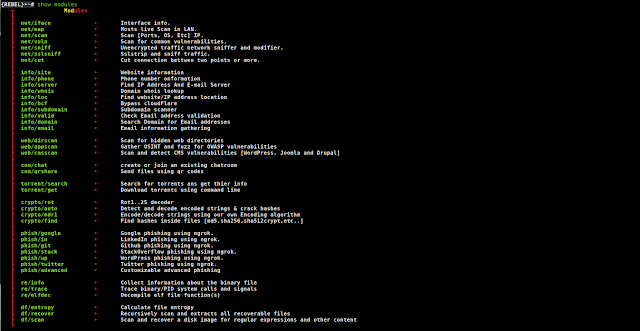Manticore is a symbolic execution tool for analysis of binaries and smart contracts.
Note: Beginning with version 0.2.0, Python 3.6+ is required.
Features
- Input Generation: Manticore automatically generates inputs that trigger unique code paths
- Crash Discovery: Manticore discovers inputs that crash programs via memory safety violations
- Execution Tracing: Manticore records an instruction-level trace of execution for each generated input
- Programmatic Interface: Manticore exposes programmatic access to its analysis engine via a Python API
Manticore can analyze the following types of programs:
- Ethereum smart contracts (EVM bytecode)
- Linux ELF binaries (x86, x86_64 and ARMv7)
Usage
CLI
Manticore has a command line interface which can be used to easily symbolically execute a supported program or smart contract. Analysis results will be placed into a new directory beginning with mcore_.
Use the CLI to explore possible states in Ethereum smart contracts. Manticore includes detectors that flag potentially vulnerable code in discovered states. Solidity smart contracts must have a .sol extension for analysis by Manticore. See a demo.
$ manticore ./path/to/contract.sol # runs, and creates a mcore_* directory with analysis results
$ manticore --detect-reentrancy ./path/to/contract.sol # Above, but with reentrancy detection enabled
$ manticore --detect-all ./path/to/contract.sol # Above, but with all detectors enabledThe command line can also be used to simply explore a Linux binary:
$ manticore ./path/to/binary # runs, and creates a mcore_* directory with analysis results
$ manticore ./path/to/binary ab cd # use concrete strings "ab", "cd" as program arguments
$ manticore ./path/to/binary ++ ++ # use two symbolic strings of length two as program argumentsAPI
Manticore has a Python programming interface which can be used to implement custom analyses.
For Ethereum smart contracts, it can be used for detailed verification of arbitrary contract properties. Set starting conditions, execute symbolic transactions, then review discovered states to ensure invariants for your contract hold.
from manticore.ethereum import ManticoreEVM
contract_src="""
contract Adder {
function incremented(uint value) public returns (uint){
if (value == 1)
revert();
return value + 1;
}
}
"""
m = ManticoreEVM()
user_account = m.create_account(balance=1000)
contract_account = m.solidity_create_contract(contract_src,
owner=user_account,
balance=0)
value = m.make_symbolic_value()
contract_account.incremented(value)
for state in m.running_states:
print("can value be 1? {}".format(state.can_be_true(value == 1)))
print("can value be 200? {}".format(state.can_be_true(value == 200)))It is also possible to use the API to create custom analysis tools for Linux binaries.
# example Manticore script
from manticore import Manticore
hook_pc = 0x400ca0
m = Manticore('./path/to/binary')
@m.hook(hook_pc)
def hook(state):
cpu = state.cpu
print('eax', cpu.EAX)
print(cpu.read_int(cpu.ESP))
m.terminate() # tell Manticore to stop
m.run()Requirements
- Manticore is supported on Linux and requires Python 3.6+.
- Ubuntu 18.04 is strongly recommended.
- Ethereum smart contract analysis requires the
solcprogram in your$PATH.
Quickstart
Install and try Manticore in a few shell commands:
# Install system dependencies
sudo apt-get update && sudo apt-get install python3 python3-pip -y
# Install Manticore and its dependencies
sudo pip3 install manticore
# Download the examples
git clone https://github.com/trailofbits/manticore.git && cd manticore/examples/linux
# Build the examples
make
# Use the Manticore CLI
manticore basic
cat mcore_*/*0.stdin | ./basic
cat mcore_*/*1.stdin | ./basic
# Use the Manticore API
cd ../script
python3 count_instructions.py ../linux/helloworldYou can also use Docker to quickly install and try Manticore:
# Download the Manticore image
docker pull trailofbits/manticore
# Download the examples
git clone https://github.com/trailofbits/manticore.git && cd manticore
# Run container with a shared examples/ directory
docker run -it -v $PWD/examples:/home/manticore/examples trailofbits/manticore
# Change to examples directory
manticore@80d441275ebf$ cd examples/linux
# Build the examples
manticore@80d441275ebf$ make
# Use the Manticore CLI
manticore@80d441275ebf$ manticore basic
manticore@80d441275ebf$ cat mcore_*/*0.stdin | ./basic
manticore@80d441275ebf$ cat mcore_*/*1.stdin | ./basic
# Use the Manticore API
manticore@80d441275ebf$ cd ../script
manticore@80d441275ebf$ python3 count_instructions.py ../linux/helloworldInstallation
Option 1: Perform a user install (requires ~/.local/bin in your PATH).
echo "PATH=\$PATH:~/.local/bin" >> ~/.profile
source ~/.profile
pip3 install --user manticoreOption 2: Use a virtual environment (requires virtualenvwrapper or similar).
sudo pip3 install virtualenvwrapper
echo "source /usr/local/bin/virtualenvwrapper.sh" >> ~/.profile
source ~/.profile
mkvirtualenv manticore
sudo ./manticore/bin/pip3 install manticoreOption 3: Perform a system install.
sudo pip3 install manticoreOption 4: Install via Docker.
docker pull trailofbits/manticoreOnce installed, the manticore CLI tool and Python API will be available.
For installing a development version of Manticore, see our wiki.
Getting Help
Feel free to stop by our Slack channel for help on using or extending Manticore.
Documentation is available in several places:
- The wiki contains some basic information about getting started with Manticore and contributing
- The examples directory has some very minimal examples that showcase API features
- The API reference has more thorough and in-depth documentation on our API
- The manticore-examples repository has some more involved examples, for instance solving real CTF problems




















Add Comment